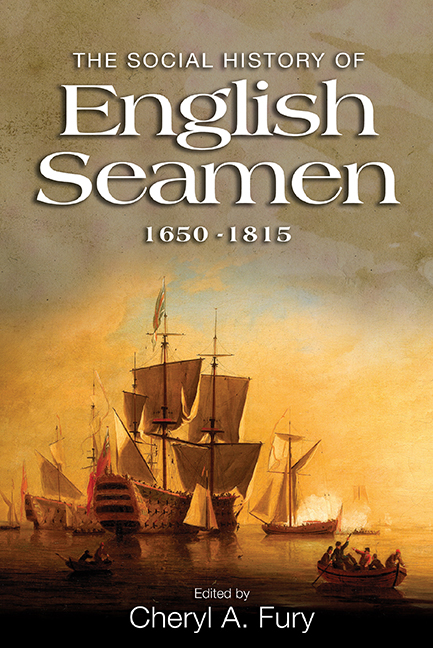Book contents
- Frontmatter
- Dedication
- Epigraph
- Contents
- List of illustrations
- List of contributors
- List of abbreviations
- Introduction
- 1 The Development of Sea Power, 1649–1815
- 2 Naval Seamen, 1650–1700
- 3 Officers and Men of the Navy, 1660–1815
- 4 The Impact of Warfare on Naval Wives and Women
- 5 Officers, Shipboard Boys and Courts Martial for Sodomy and Indecency in the Georgian Navy
- 6 Health Provision in the Royal Navy, 1650–1815
- 7 The Origins and Careers of English Merchant Seamen in the Late Seventeenth and Early Eighteenth Centuries
- 8 Private Enterprise, Public Policy and the Development of Britain's Seafaring Workforce, 1650–1815
- 9 Jack Tar's Food: Masculine Self-fashioning in the Age of Sail
- 10 Pirates, Privateers and Buccaneers: The Changing Face of English Piracy from the 1650s to the 1720s
- Conclusion
- Bibliography
- Index
10 - Pirates, Privateers and Buccaneers: The Changing Face of English Piracy from the 1650s to the 1720s
Published online by Cambridge University Press: 11 August 2017
- Frontmatter
- Dedication
- Epigraph
- Contents
- List of illustrations
- List of contributors
- List of abbreviations
- Introduction
- 1 The Development of Sea Power, 1649–1815
- 2 Naval Seamen, 1650–1700
- 3 Officers and Men of the Navy, 1660–1815
- 4 The Impact of Warfare on Naval Wives and Women
- 5 Officers, Shipboard Boys and Courts Martial for Sodomy and Indecency in the Georgian Navy
- 6 Health Provision in the Royal Navy, 1650–1815
- 7 The Origins and Careers of English Merchant Seamen in the Late Seventeenth and Early Eighteenth Centuries
- 8 Private Enterprise, Public Policy and the Development of Britain's Seafaring Workforce, 1650–1815
- 9 Jack Tar's Food: Masculine Self-fashioning in the Age of Sail
- 10 Pirates, Privateers and Buccaneers: The Changing Face of English Piracy from the 1650s to the 1720s
- Conclusion
- Bibliography
- Index
Summary
English seaborne depredation acquired new energy and direction during the second half of the seventeenth century, paving the way for the alarming, but shortlived, globalization of organized piracy. Drawing on a long tradition of plunder at sea, English pirates and rovers ranged the Caribbean, spread outwards into the Pacific and Atlantic, and infiltrated the Indian Ocean, exposing the vulnerability of international trade and colonial settlements to attack. The development of long-distance piracy deliberately confused boundaries between legal and illegal activity. With official sanction or unofficial connivance, privateering and buccaneering skirted the bounds of legality. In these circumstances the expansion of English piracy, the product of an inherent centrifugal tendency, created fragmented and fractured forms of enterprise. By the early eighteenth century the activities of a group of pirate leaders were beginning to place an intolerable burden on key commercial and colonial networks of the British economy. When this was accompanied by signs of institutional form and organization, including the emergence of scattered pirate settlements, as well as a provocative and threatening outlaw culture, the resources of the state were deployed to destroy the menace of organized piracy. One of the underlying themes of this period, therefore, was a shifting perception of piracy, particularly in its wider relationship with state and community. It was an important development, which effectively forestalled the appearance, in shadow outline, of an anti-empire of sea rovers that preyed on the resources of ambitious, expanding and increasingly powerful metropolitan interests.
Context: sea war and plunder during the 1650s
Although organized English piracy appeared to be in retreat during the 1630s, the civil war led to the revival of widespread plunder at sea of varied and contested legality. Both royalists and parliamentarians resorted to the licensing of privateering. Royalist activity continued after the execution of Charles I in 1649, through the issue of commissions by his sons, Charles and James, to English captains based in French and Flemish ports. These adventurers were dismissed as pirates by the Commonwealth regime and its supporters; if caught, they faced the prospect of trial and execution by the High Court of Admiralty.
- Type
- Chapter
- Information
- The Social History of English Seamen, 1650-1815 , pp. 213 - 230Publisher: Boydell & BrewerPrint publication year: 2017



